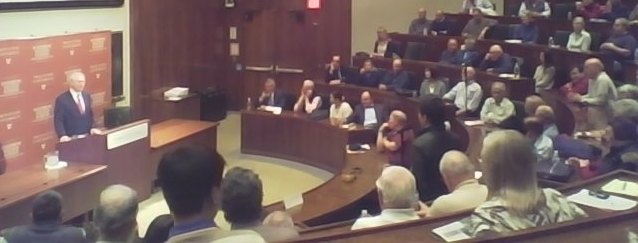I'm a physics major, and studying that subject takes up the majority of my time. But one of the benefits of attending a liberal arts university like Princeton is that physics is never the only thing I am learning. I have taken a five-person seminar on autobiographical fiction in Latin America taught by a Mexican author and intellectual, a lecture on Grand Strategy by a prominent international relations theorist, and a class about the history of the United States' involvement in world affairs taught by an expert in U.S.-Indonesian relations.
Right now, I'm finishing up a very physics-heavy semester, but even so I've managed to explore nonscientific parts of the world. One of my favorite ways to do this is by listening to some of the many guest speakers who come to Princeton. For example, one afternoon after my condensed matter class, I ran from Jadwin Hall, home to the physics department, to Robertson Hall, home to the Woodrow Wilson School of Public and International Affairs. That afternoon, the Woodrow Wilson School was hosting a talk by Christopher Hill, the former Ambassador to Iraq. I had read about Hill in various newspaper articles, so I was excited to see him in person.

The subject of Hill's talk was global hotspots. He began by delivering what ended up being a rather depressing overview of current events. Syria, he thought, was a pressing, serious problem that was metastasizing across the Middle East. Ukraine was an especially concerning situation given Europe's dependence on Russian gas. North Korea's new leadership was more belligerent than the last; China was beginning to take on a dark, concerning role.
The ambassador concluded his talk with more general reflections about diplomacy, which were not much cheerier. Diplomacy, he noted, was ultimately about asking people to do things they would rather not do. To make such requests successful, leaders must rely on personal relationships they have built with others. The alternative is to use force, but Hill says war is a horrific event that people tend to underestimate.
Leaving Ambassador Hill's presentation, I was thinking about issues very different from the equations and graphs that usually fill my time. Though his talk was quite heavy, I was glad I went and it gave me an opportunity to learn about a field different from my own.






